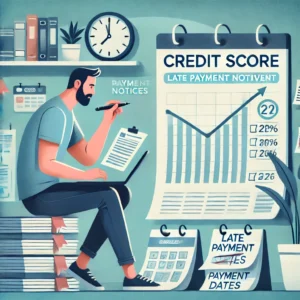The Ultimate Guide to Credit Cards: Everything You Need to Know
Credit cards have become an essential tool in modern financial management, offering convenience, security, and even rewards. But with so many options available, understanding how credit cards work and which one is best for you can be overwhelming. This comprehensive guide will walk you through everything you need to know about credit cards, helping you make informed decisions that align with your financial goals.
What Is a Credit Card?
A credit card is a financial tool that allows you to borrow money from a bank or financial institution up to a certain limit to pay for goods and services. Unlike debit cards, which draw money directly from your bank account, credit cards let you make purchases on credit, which you’ll need to repay either in full or over time.
When you use a credit card, the issuing company pays the merchant on your behalf, and you are responsible for paying back the issuer. If you don’t pay off the balance in full each month, you’ll incur interest charges, which can add up quickly.
Types of Credit Cards
Credit cards come in various types, each catering to different financial needs and lifestyles. Here are the main categories:
- Rewards Credit Cards: These cards offer points, miles, or cash back for every dollar you spend. Rewards can be redeemed for travel, gift cards, statement credits, and more.
- Cash Back Credit Cards: A type of rewards card that offers a percentage of your purchases back as cash. These cards are popular because they provide a simple way to earn rewards on everyday spending.
- Travel Credit Cards: Travel cards offer points or miles that can be redeemed for flights, hotels, and other travel-related expenses. Many travel cards also include perks like free checked bags, airport lounge access, and travel insurance.
- Balance Transfer Credit Cards: These cards allow you to transfer existing debt from other credit cards, often at a lower interest rate or even 0% for an introductory period. They are useful for consolidating debt and saving on interest.
- Secured Credit Cards: Designed for people with no or bad credit, secured cards require a cash deposit as collateral. This deposit acts as your credit limit. Secured cards help individuals build or rebuild their credit history.
- Student Credit Cards: These are tailored for students who are new to credit. They typically have lower credit limits and may offer rewards and tools to help students manage their finances.
- Business Credit Cards: Business cards are designed for small business owners and offer rewards and benefits tailored to business expenses. They also help keep personal and business finances separate.
How Credit Cards Work
Using a credit card is straightforward. When you make a purchase, the credit card company pays the merchant and adds the amount to your balance. You then have a grace period (typically 21 to 25 days) to pay off the balance without incurring interest. If you don’t pay the full balance by the due date, interest is charged on the remaining amount.
Credit card issuers calculate interest using a method called the average daily balance. This means that even small balances can accrue significant interest over time if left unpaid.
Different types of credit cards that exist
Benefits of Using Credit Cards
- Convenience: Credit cards are widely accepted, making them a convenient way to pay for goods and services both online and in-store.
- Rewards: Many credit cards offer rewards in the form of cash back, points, or miles. These rewards can be redeemed for various things, making your purchases more valuable.
- Building Credit: Responsible use of a credit card can help build your credit score. A strong credit score is essential for getting approved for loans, mortgages, and even some jobs.
- Security: Credit cards offer fraud protection, meaning that if your card is stolen or used without your permission, you can dispute the charges and avoid liability.
- Purchase Protection: Many credit cards offer purchase protection, which covers your purchases against damage, theft, or loss for a certain period after the purchase.
- Travel Benefits: Travel credit cards often come with valuable benefits like travel insurance, rental car insurance, and access to airport lounges.
Downsides of Credit Cards
While credit cards offer many benefits, they also come with potential risks:
- High Interest Rates: Credit cards often come with high-interest rates, especially if you don’t pay off your balance in full each month. Carrying a balance can lead to significant debt over time.
- Fees: Credit cards can come with various fees, including annual fees, late payment fees, and foreign transaction fees. It’s important to be aware of these fees and factor them into your decision when choosing a card.
- Debt Accumulation: It can be easy to overspend when using a credit card, leading to debt accumulation. If you’re not careful, you can quickly find yourself in a cycle of debt that’s difficult to escape.
- Impact on Credit Score: Misusing a credit card, such as making late payments or maxing out your credit limit, can negatively impact your credit score. A poor credit score can affect your ability to get loans or secure favorable interest rates in the future.
How to Choose the Best Credit Card for You
Choosing the right credit card depends on your financial situation, spending habits, and goals. Here are some key factors to consider:
- Interest Rates: Look for a card with a low-interest rate, especially if you plan to carry a balance from month to month.
- Rewards: Choose a rewards program that aligns with your spending habits. If you travel frequently, a travel rewards card may be ideal. If you prefer simplicity, a cash back card might be the best option.
- Fees: Be mindful of any fees associated with the card, such as annual fees, foreign transaction fees, or balance transfer fees. Consider whether the card’s benefits outweigh these costs.
- Credit Limit: Your credit limit should be high enough to accommodate your spending needs without maxing out your card, which can hurt your credit score.
- Introductory Offers: Many credit cards offer sign-up bonuses, 0% APR introductory periods, or other promotional offers. These can be valuable but make sure to read the fine print.
- Additional Perks: Consider any additional perks that come with the card, such as travel insurance, extended warranties, or access to exclusive events.
Tips for Using Credit Cards Wisely
To get the most out of your credit card while avoiding debt, follow these best practices:
- Pay Your Balance in Full: To avoid interest charges, pay off your balance in full each month. This will also help you maintain a good credit score.
- Keep Track of Your Spending: Regularly monitor your credit card statements to ensure you’re not overspending. Setting up alerts can help you stay on top of your balance and due dates.
- Use Rewards Strategically: Maximize your rewards by using your credit card for purchases in categories that offer the highest rewards. However, don’t overspend just to earn rewards.
- Stay Within Your Credit Limit: Keeping your credit utilization ratio (the percentage of your credit limit that you’re using) below 30% can help protect your credit score.
- Avoid Cash Advances: Cash advances often come with high fees and interest rates. Use your credit card for purchases only and avoid taking out cash unless it’s an emergency.
Credit cards are powerful financial tools that offer convenience, rewards, and security when used responsibly. By understanding how they work, comparing different types of cards, and choosing one that aligns with your financial goals, you can make the most of your credit card and avoid the pitfalls of debt.
Whether you’re looking to earn rewards, build your credit, or enjoy travel perks, there’s a credit card out there that fits your needs. Take the time to research your options and always use credit cards wisely to ensure they benefit your financial health in the long run.








